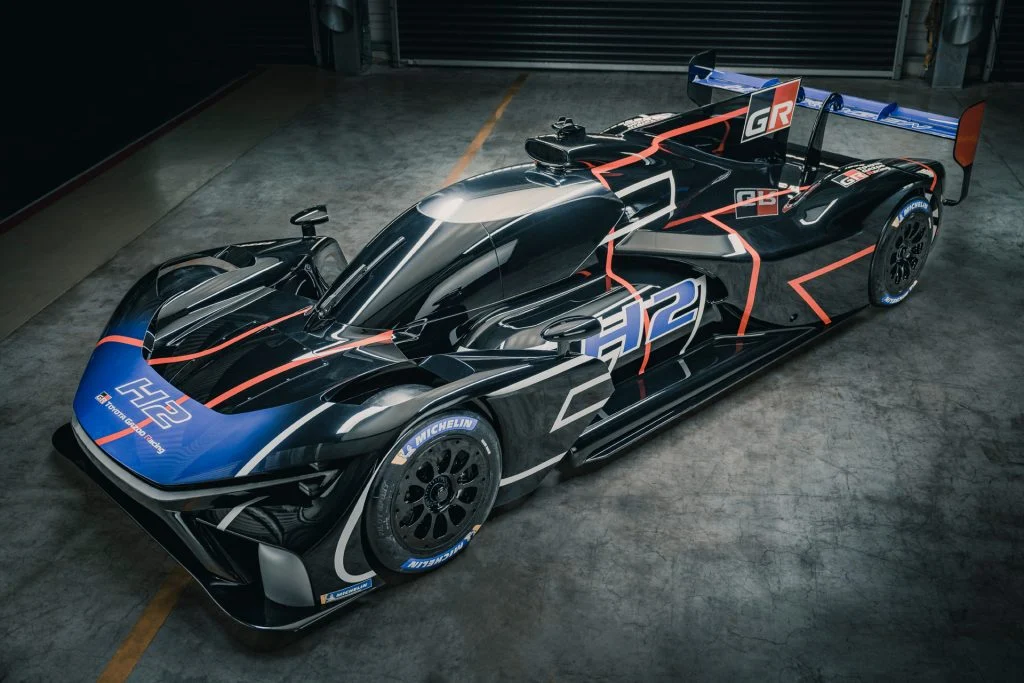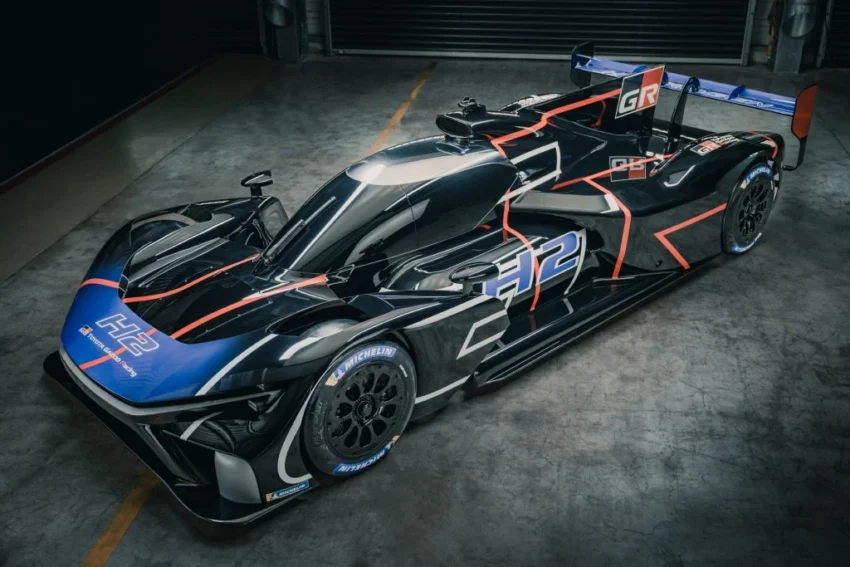In comparison to electric vehicles, hydrogen cars have a number of advantages, including quicker refueling times that are often on par with those of gasoline vehicles and longer driving ranges because hydrogen has a higher energy density. Additionally, consumers are getting accustomed to driving hydrogen fuel cell vehicles because they offer a similar sensation to conventional internal combustion engines. The restricted availability of hydrogen fuelling infrastructure, greater production and storage costs, and the requirement for energy-intensive hydrogen generation are some of the issues that hydrogen automobiles must overcome.
On the eve of the 2023 24 Hours of Le Mans, Toyota announced its newest innovation as the automobile sector works to cut emissions. The Toyota GR H2 Racing concept, a Le Mans prototype race car driven by hydrogen, offers a glimpse into the potential for hydrogen power on the racetrack in the future. Let’s investigate this idea and how it might affect the world of racing.
Toyota is collaborating with Yamaha to design a V8 Hydrogen Engine
Toyota has been taking part in Japan’s Super Taikyu Series from 2021 using a race car based on the Corolla that features a hydrogen engine. Although burning hydrogen emits no CO2, reducing nitrogen oxide emissions is still difficult. Toyota intends to address this issue by utilizing selective catalytic reduction technology based on urea, similar to that found in contemporary diesel engines. The industry appears to be actively attempting to extend the infrastructure, but the lack of hydrogen fuelling stations is another significant barrier.

Although the GR H2 Racing concept’s engine’s details were kept a secret, Toyota has been working with Yamaha to create a V-8 hydrogen engine. The competence of Yamaha, already proven in the V-10 engine of the Lexus LFA supercar, lends further support to this risky endeavor.
Toyota emphasizes that the GR H2 Racing concept is more than just a fashion statement. A hydrogen-powered class will be added to the World Endurance Championship in 2026, which is known for the legendary Le Mans event. The championship intends to promote fair competition between hydrogen-powered and fuel-cell cars by introducing Balance of Performance rules.
